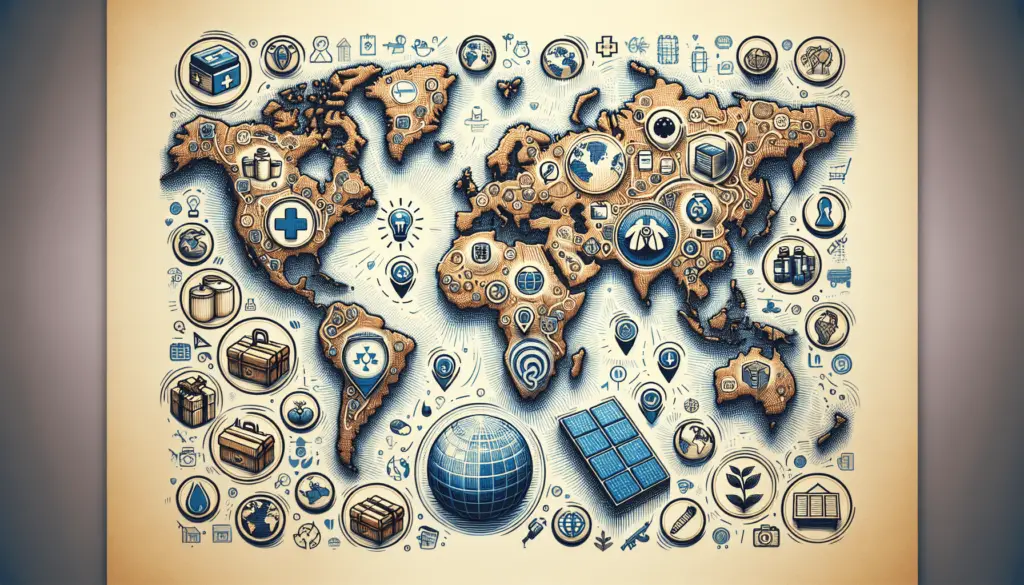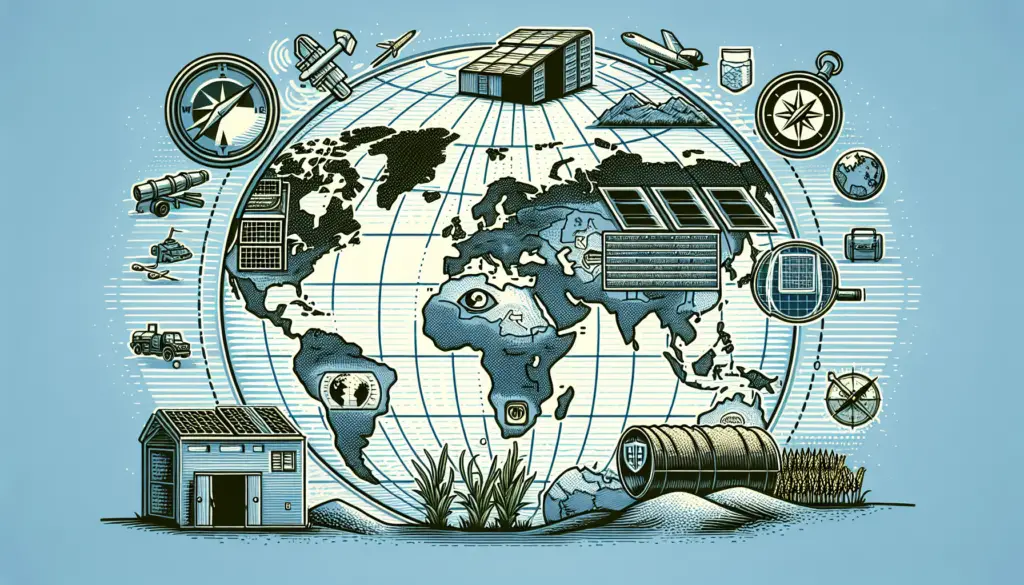Welcome to an insightful article on the impact of globalization on prepping strategies. In today’s interconnected world, the way we prepare for emergencies and disasters has evolved as a result of globalization. From food security to supply chain disruptions, this article will explore how global trends are shaping our approach to prepping. Get ready to discover the new challenges and opportunities that come with preparing for the unforeseen in a globalized society.
How has Globalization changed Prepping Strategies?
Have you ever wondered how the interconnectedness of the world through globalization has affected the way people approach emergency preparedness or “prepping”? Let’s dive into the impact of globalization on prepping strategies and how you can adapt to these changes.

Understanding the Concept of Globalization
Before we delve into how globalization has influenced prepping strategies, it’s crucial to have a clear understanding of what globalization entails. Globalization refers to the interconnectedness of economies, cultures, and societies worldwide. It involves the integration of various nations through trade, communication, technology, and transportation.
In simpler terms, globalization has made the world a smaller place, allowing information, goods, and services to flow more freely across borders. This interconnectedness has both positive and negative implications for prepping strategies.
Increased Access to Resources
One of the positive impacts of globalization on prepping strategies is the increased access to resources. Thanks to globalization, preppers now have a wider range of products and tools at their disposal to prepare for emergencies. Whether it’s advanced survival gear, food supplies, or communication devices, preppers can access a variety of resources from around the world.
Additionally, globalization has facilitated the exchange of information and knowledge among preppers globally. Through online forums, social media groups, and websites, preppers can learn from each other’s experiences, strategies, and best practices. This sharing of information has enriched the prepping community and enabled individuals to improve their preparedness efforts.
Diversity in Prepping Strategies
Another significant impact of globalization on prepping strategies is the diversity it has introduced. With the exchange of ideas and practices from different parts of the world, preppers now have a broader perspective on how to prepare for emergencies. This diversity allows individuals to tailor their prepping strategies to their specific needs, location, and circumstances.
For example, a prepper living in a coastal area may focus more on preparing for hurricanes, tsunamis, or flooding, while someone in a remote mountain region may prioritize self-sufficiency and off-grid living. Globalization has enabled preppers to learn from each other’s experiences and adapt their strategies accordingly.
Challenges of Globalization on Prepping Strategies
While globalization has brought about many benefits for preppers, it has also presented several challenges that individuals need to navigate. One of the main challenges is the reliance on global supply chains for essential prepping supplies. In a globalized world, many products are manufactured in distant countries and transported across borders, making them vulnerable to disruptions.
During a crisis or emergency, such as a natural disaster, pandemic, or geopolitical conflict, these supply chains can be severely impacted, leading to shortages of critical prepping items. This reliance on global supply chains has highlighted the importance of building resilience and self-sufficiency in prepping strategies.

Building Resilience and Self-Sufficiency
In response to the challenges posed by globalization, many preppers are focusing on building resilience and self-sufficiency in their preparedness efforts. Resilience refers to the ability to withstand and recover from disruptions, while self-sufficiency involves reducing dependence on external sources for basic needs.
To achieve resilience and self-sufficiency, preppers are adopting various strategies such as:
- Stockpiling essential supplies like food, water, medications, and first aid supplies.
- Developing skills in gardening, foraging, hunting, fishing, and food preservation.
- Investing in renewable energy sources like solar panels, generators, and wind turbines.
- Learning basic survival skills like shelter building, fire starting, navigation, and self-defense.
By focusing on resilience and self-sufficiency, preppers can mitigate the risks associated with disruptions to global supply chains and ensure their preparedness for a wide range of emergencies.
Adapting to Local and Global Threats
Another important aspect of prepping strategies in the age of globalization is the need to adapt to both local and global threats. While prepping has traditionally focused on preparing for localized emergencies like natural disasters, home invasions, or power outages, globalization has introduced new threats that are global in nature.
Pandemics, cyber attacks, economic crises, terrorism, and climate change are examples of global threats that can impact individuals worldwide. Preppers need to consider these global threats in their preparedness efforts and develop strategies to address them effectively.
Balancing Personal Privacy and Information Sharing
In a digital age where information is easily accessible and shared online, preppers face the challenge of balancing personal privacy with the benefits of information sharing. While it’s essential to connect with other preppers, learn from their experiences, and exchange ideas, individuals must also protect their privacy and security.
Practicing good OPSEC (Operational Security) is crucial for preppers to safeguard their identity, location, supplies, and plans from potential threats. Using secure communication channels, being mindful of what information is shared online, and building trusted networks with like-minded individuals are ways to strike a balance between personal privacy and information sharing.
Leveraging Technology for Preparedness
Technology plays a vital role in modern prepping strategies, enabling individuals to enhance their preparedness efforts in numerous ways. From communication devices to survival apps, drones, GPS trackers, and water purification systems, technology offers a wide range of tools that can aid preppers in planning, responding to emergencies, and staying connected with others.
By leveraging technology, preppers can access real-time information, communicate with loved ones, monitor their surroundings, and navigate unfamiliar terrain more effectively. However, it’s essential to recognize the limitations of technology and have backup plans in place in case of power outages, network failures, or equipment malfunctions.
Conclusion
In conclusion, the impact of globalization on prepping strategies is complex and multifaceted, presenting both opportunities and challenges for individuals preparing for emergencies. By understanding the interconnectedness of the world, building resilience and self-sufficiency, adapting to local and global threats, and leveraging technology responsibly, preppers can enhance their preparedness efforts and better protect themselves and their loved ones.
Remember, preparedness is a journey, not a destination. Stay informed, stay vigilant, and stay prepared. The world may be unpredictable, but with the right mindset and strategies, you can navigate through any crisis that comes your way. Happy prepping!
